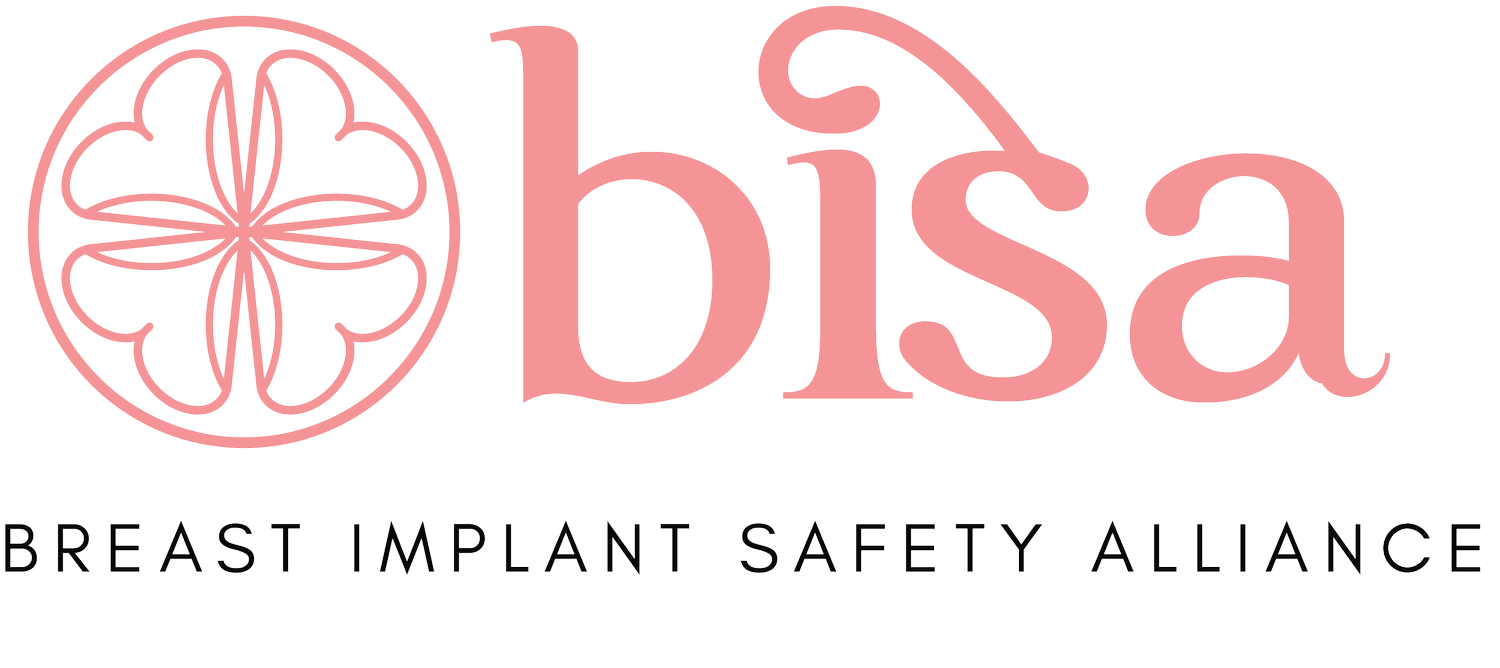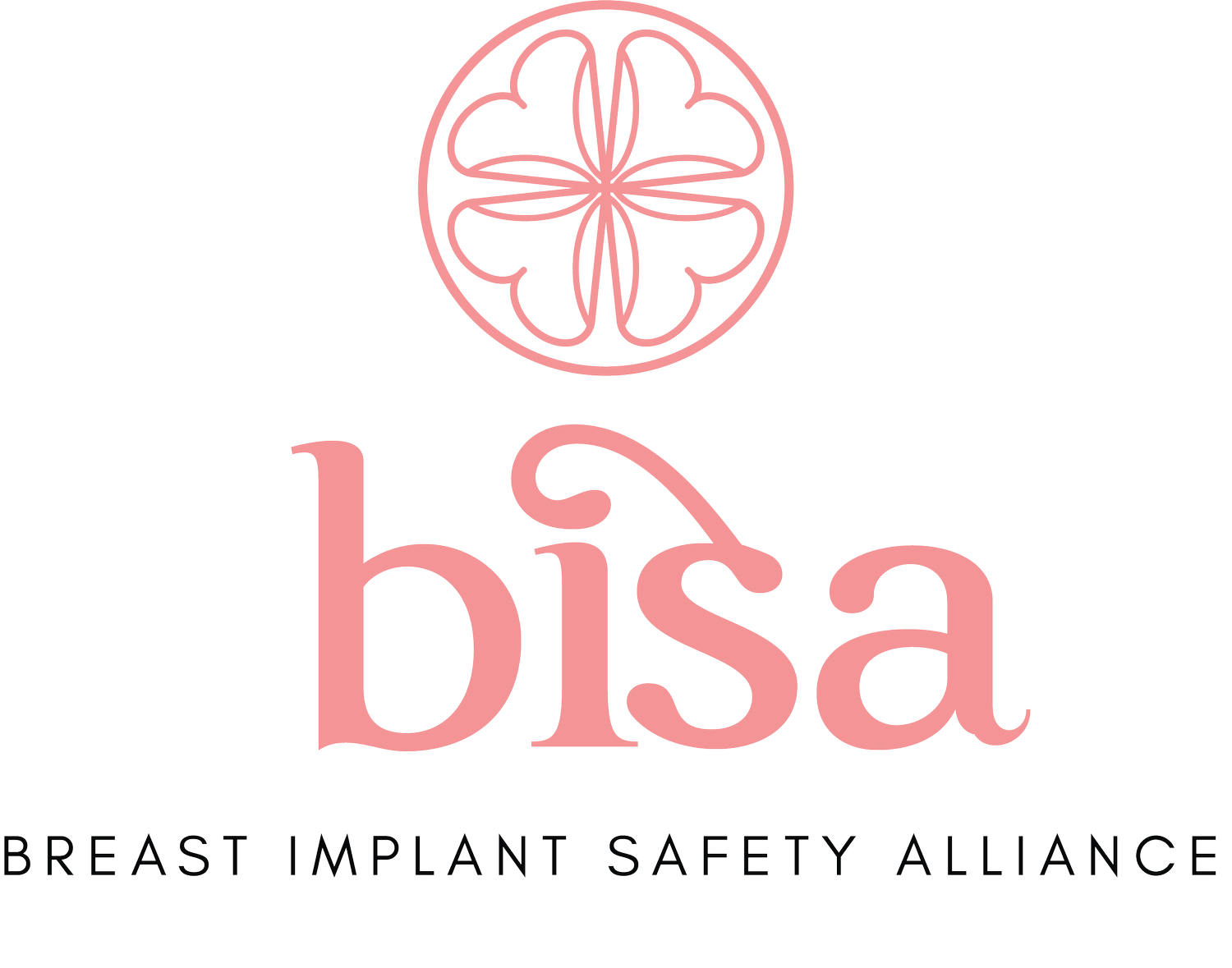Heidi Rolfs
SECRETARY, ADVOCATE & BOARD MEMBER
Portland, OR
Last Modified: May 10, 2023
Heidi Rolfs, RN, BCPA, is a registered nurse working in Healthcare Quality in the Pacific Northwest. Her background includes oncology nursing, health care management, and nursing professional development.
As a BISA Board Secretary and patient advocate, Heidi is passionate about helping people navigate the healthcare continuum to achieve their best outcomes. She advocates for those who have experienced breast implant-related illness and complications, with a focus on education, safety, transparency, and informed decisions.
Heidi had breast implants placed in 1990 when there was minimal publicly accessible information about the safety and long-term effects of these devices. She removed her implants years later when she developed complications and breast implant illness. Many of her symptoms resolved or improved after explant, and she feels much better.
Nevertheless, this has been a life-altering experience, and she’s here to share her story for the benefit of others. Heidi lives in Portland, Oregon. She enjoys rock painting as a hobby. She also loves taking her dog on hikes with her husband on the many trails in the Pacific Northwest.
Heidi’s Implant Story
I was harmed by breast implants, a medical device that is placed cosmetically or medically into women. It’s important to note that many women, including breast cancer patients after mastectomy, have been negatively impacted by these devices.
I had breast implants placed in 1990, at a time when there was little consumer accessibility to research on these devices. At my surgical consult, I was handed a one-page information sheet that was written by the plastic surgery center. I didn’t receive information on the type, brand, or name of the devices, and there were no serial numbers or manufacturer information offered for my records. This information would have been useful in the event of a recall. I eventually learned that, even in 1990, there were known risks that were not disclosed during the informed consent process.
In January 1992, the FDA called for a moratorium on silicone implants, and since then, there have been many changes and updates, including a recent Black Box Warning for these devices. Yet here we are, years later, having conversations about transparency and the safety of breast implants. In August 2020, the U.S. Food and Drug Administration provided an update on adverse events that had been reported related to breast implants, including breast implant-associated anaplastic large cell lymphoma (BIA-ALCL) as well as systemic signs and symptoms, referred to as breast implant illness (BII). Then, in 2022 another FDA safety communication came out about reports of Squamous Cell Carcinoma in the scar tissue that forms around the implant. For these reasons, I am concerned about the lack of awareness by the public about the risks associated with these medical devices.
In 2013, I was an avid cyclist and a healthy woman at the peak of my career. I was healthy until I wasn’t. I began to experience joint pain, muscle weakness, overwhelming fatigue, and brain fog. It felt like someone poured concrete into my thighs and spine. I was stiff; I was dropping things due to the stiffness of my hands, and simply getting up out of a chair was difficult. I was tired all the time and struggled to focus on work. I cannot stress enough how these symptoms placed a heavy burden on my career and personal life.
In 2018, I removed my implants after developing capsular contracture of the left implant. I had also developed an autoimmune condition that’s commonly associated with breast implants. My devices were not tracked or recorded in any registry. I did not have sufficient initial informed consent about the long-term impact of implants. The doctors I saw over the years were unfamiliar with breast implant illness, and my symptoms were often dismissed. My explant operative report noted there was free-flowing silicone encountered during the surgery, and this toxic substance needed to be cleaned out of my chest area. Sadly, I lost my momentum with cycling and haven’t been able to recapture it. Due to the fatigue and exasperation from this illness, I lost precious quality time with family and friends.
We need to do better! I support sufficient funding allocation for patient safety and post-market surveillance of these medical devices. Primary care physicians, rheumatologists, and other health care providers need education on the risks and side effects of these medical devices. If my doctors had been more knowledgeable about breast implant illness, I could have removed them sooner and avoided years of illness and costly medical care. I hope this information about my experience with implants helps others understand how these devices can impact a woman’s health.
Professional Experience
Executive Nurse Consultant, Quality & Service
Professional Development Consultant/Nurse Education
RN Manager, Primary Care
RN Manager, Medical Oncology-Hematology
Clinical Supervisor, Multispecialty Infusion Center
RN, Inpatient Medical/Surgical Oncology
Education
San Francisco State University – Bachelor of Arts, Organizational Communications
Western Governors University – Bachelor of Science, Nursing
Clark College School of Nursing, ADN
Achievements
Patients Rising Master Class, Graduate
Six Sigma Green Belt, University of Michigan
Certifications
Board Certified Patient Advocate (BCPA), Patient Advocate Certification Board
Certified Professional Healthcare Quality (CPHQ), National Association for Healthcare Quality



